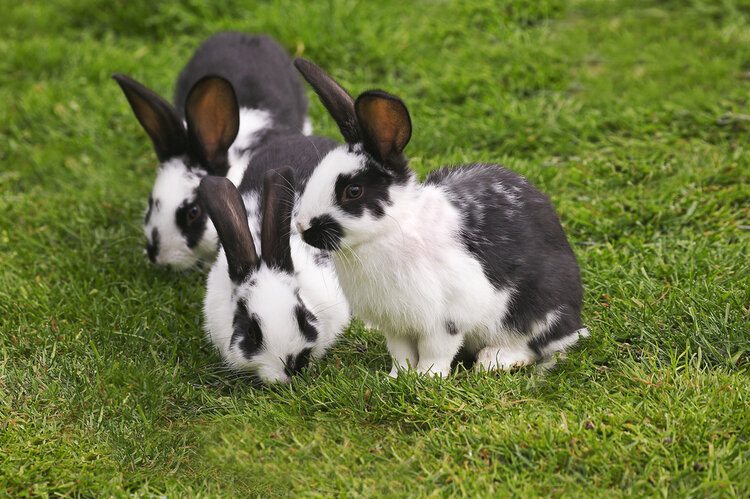VET APPROVED

The information is current and up-to-date in accordance with the latest veterinarian research.
Learn more »Click to Skip Ahead
If you suffer from pet allergies, you need to do research before you bring any new animal into your home. The last thing you want is to get a new pet you love, only to have terrible allergies flare up whenever you’re around them.
With that in mind, is it possible to get a hypoallergenic rabbit? The truth is that every rabbit can cause allergic flare-ups, but some spread less dander than others. So, are there hypoallergenic rabbits? That all depends on how you define “hypoallergenic.” We’ll break down everything you need to know here so you can make an informed decision before you bring a pet rabbit into your home.

What Causes Rabbit Allergies?
Like all pet allergies, rabbit allergies come from a protein in their dander (dead skin cells) and saliva. While you might think you can avoid pet allergies by keeping your rabbit from licking you, that’s simply not how it works.
When rabbits groom themselves, they spread dander to their fur, and when they shed, the dander ends up all over your home. As you stir up the hairs, they can enter your airways, and when that happens, it can cause an allergic reaction.
So, while it’s true that the pet hair isn’t what’s causing the pet allergies, there’s dander all over rabbit hair that will cause a flare-up if you’re allergic.
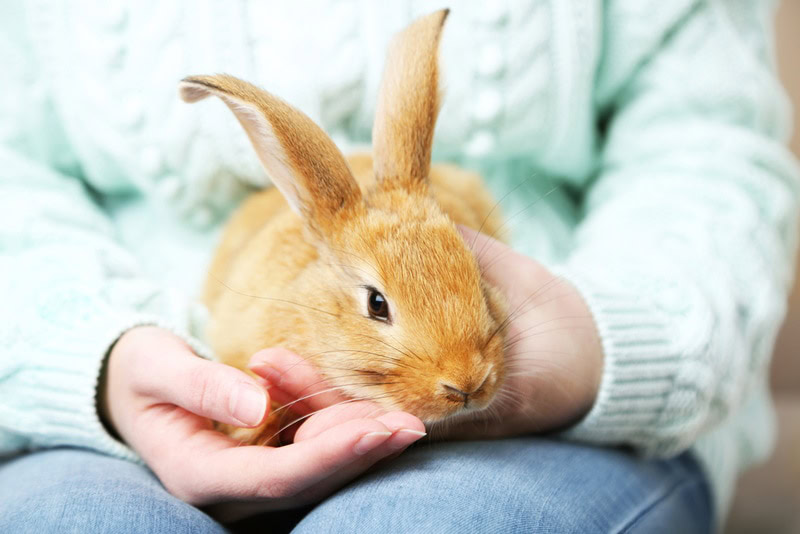
What Does “Hypoallergenic” Mean?
It’s important to note that all pets have dander. This means there is no such thing as a pet that won’t cause pet allergies—only pets that are less likely to cause them.
Some rabbits are less likely to cause an allergic reaction than others. They have shorter coats, shed less, and create less dander than other breeds. They can still cause allergic flare-ups but are less likely to do so than other breeds.

The 6 Hypoallergenic Rabbit Breeds
While any rabbit can cause allergies, these six are less likely to cause a reaction. We’ve highlighted each breed and a little about them for you here:
1. The Mini Rex Rabbit

The Rex Rabbit is the most popular pet rabbit, and at 3 to 4.5 pounds, they’re among the smallest, too. They shed less than other breeds, but they still shed. They’re gentle and friendly, making great companions for individuals and families.
2. The Tan Rabbit
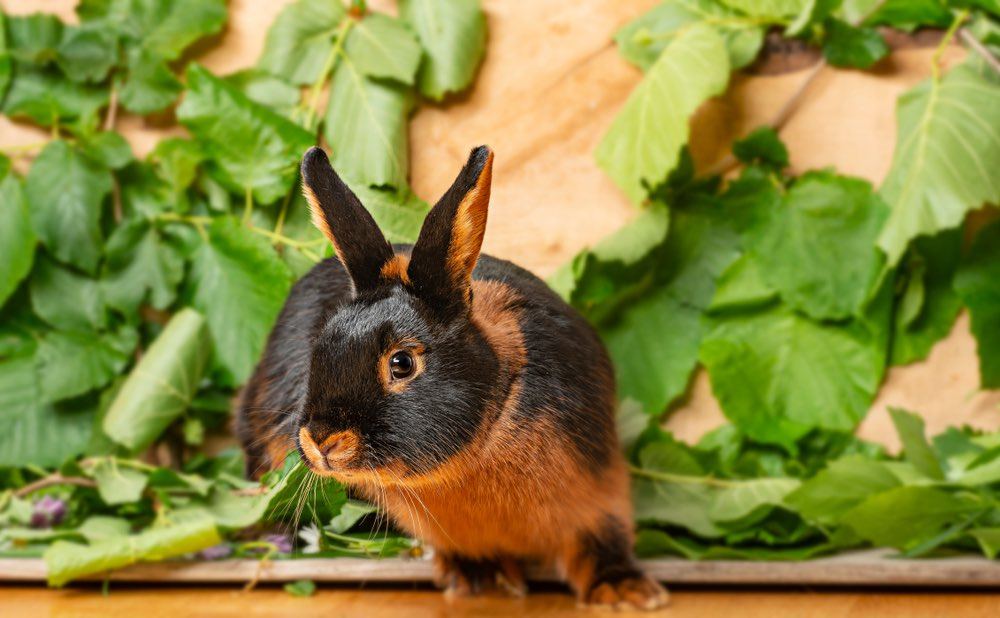
The Tan rabbit has a relatively longer coat than other breeds in this list, but because they shed less, they require less maintenance and don’t cause as many allergies. Because their hair is a bit longer, even the little hair they shed is less likely to make it into your airways and cause a problem.
3. New Zealand White Rabbit
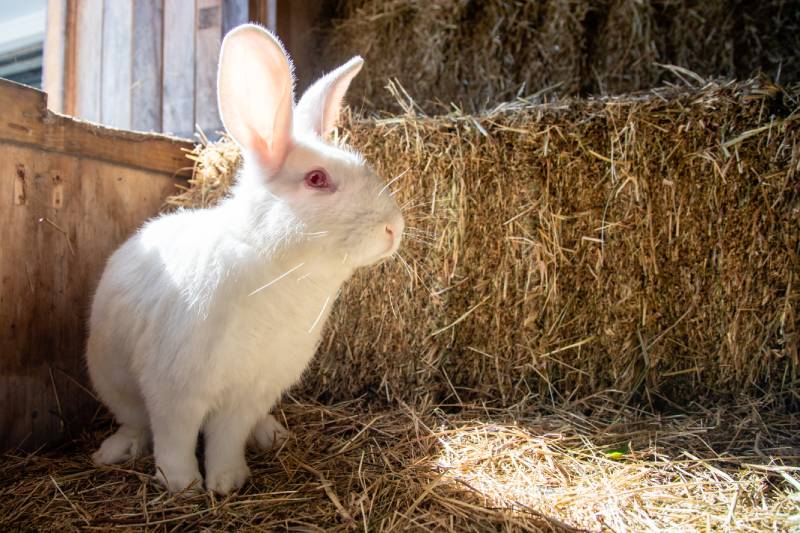
The New Zealand rabbit is larger than most hypoallergenic rabbits. They have short fur that sheds heavily. It takes an experienced handler to groom and care for them, and even with the most experienced handler, they still might not be a great choice for young kids or other inexperienced adults.
4. Silver Fox Rabbit
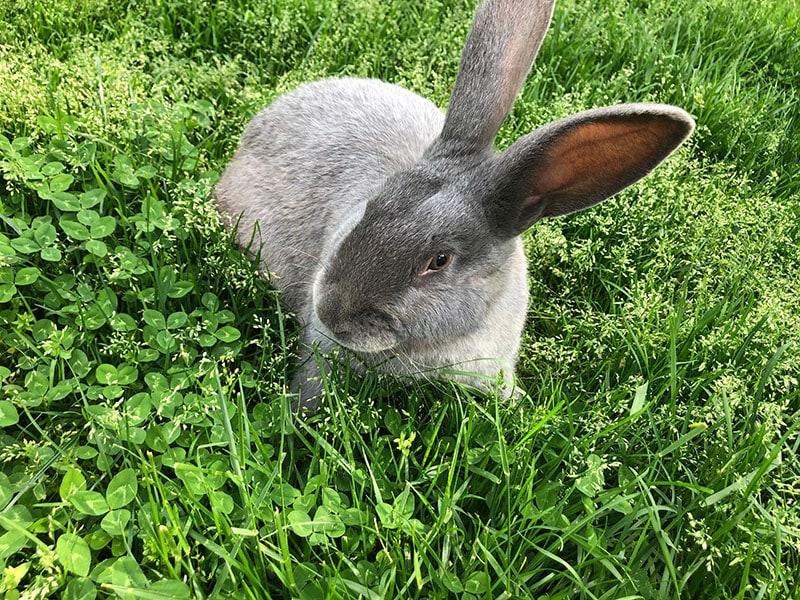
While the Silver Fox rabbit is similar to other pet rabbits, they possess a gentle and friendly temperament that makes them a great pet. They’re another long-haired breed that needs occasional brushing to prevent matting.
5. California Rabbit
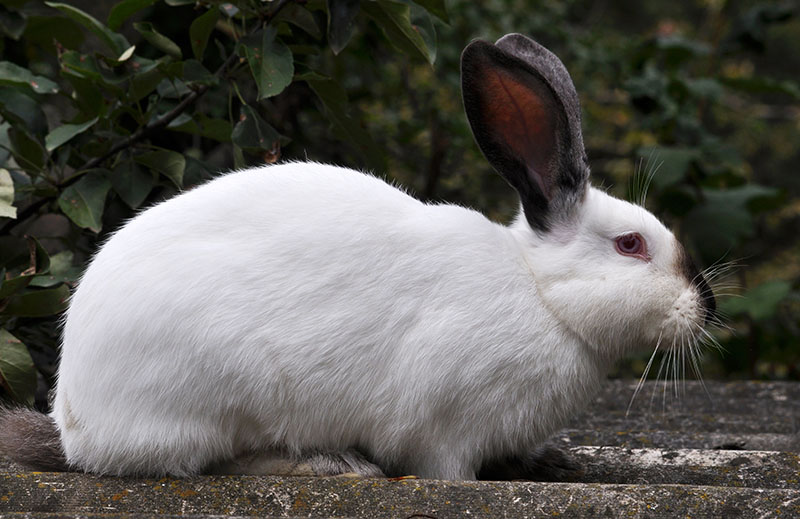
While the California Rabbit is a sweet and loving pet that doesn’t cause too many allergy problems throughout most of the year, they cause significant concerns with people with allergies twice a year when they switch coats. They have dense and relatively coarse hair.
During the seasonal shedding periods, you’ll need someone to help you bathe them and brush them out thoroughly to complete the process as quickly as possible.
6. Silver Marten
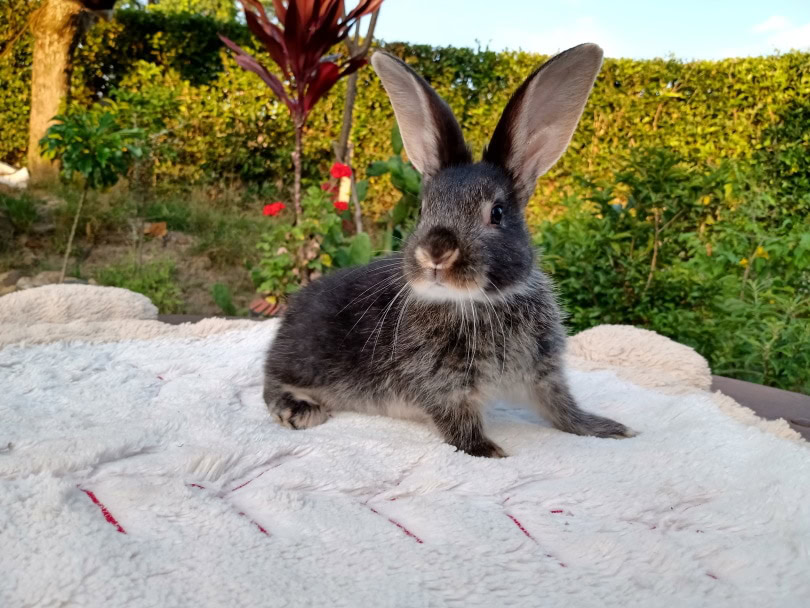
While the Silver Marten rabbit is less likely to cause allergies, they still shed. To help with this, you can brush their soft and shiny coat once a week, which may alleviate the risk of allergy flare-ups but won’t eliminate the problem altogether.
 Final Thoughts
Final Thoughts
If you suffer from severe pet allergies, there might not be a rabbit out there that’s a good fit for you. However, you can spend time with several breeds to determine which ones don’t affect your allergies.
Every rabbit has the potential to cause allergic reactions, and if you’re suffering from allergies, we recommend speaking to both a vet and your medical doctor to determine what you can do and whether bringing a pet rabbit into your home is a good idea.
Related Reads:
- Top 6 Smartest Rabbit Breeds (With Pictures)
- 5 Australian Rabbit Breeds (With Pictures)
- Top 6 Fluffy Rabbit Breeds (With Pictures)
Featured Image Credit: Wanwajee Weeraphukdee, Shutterstock








